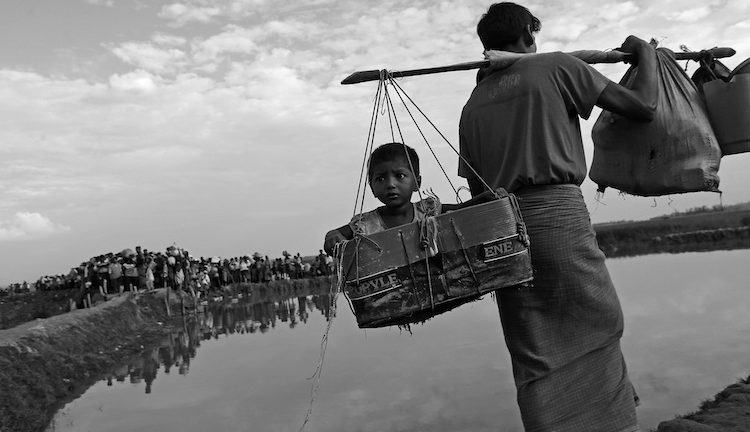BY Aayusha Pokharel*
KATHMANDU. 12 October 2023 (IDN) — The World Health Organisation (WHO) will be nominating its South East Asia Regional Office (SEARO) Director at its 76th session starting 30 October in New Delhi.
Nepal’s candidate Shambu Prasad Acharya has emerged as a clear favourite among international public health practitioners. But vying for the same position is Saima Wazed, a psychologist and the daughter of Bangladesh Prime Minister Sheikh Hasina.
Many see this as a context between a professional with decades of experience in health against a political appointee.
The global health community is keeping a close watch, especially given that the region has a high disease burden and is a hotspot for both new and emerging infections as well as chronic illnesses.
Former UN Assistant Secretary-General and Deputy Executive Director of UNICEF Kul Chandra Gautam believes Acharya is the more qualified candidate, and not just because he is a fellow Nepali.
“The most important qualities for an incoming WHO regional director are a strong background in public health, a deep understanding of global and regional health challenges with the ability to prioritise them,” Gautam told Nepali Times.
“Sambhu Acharya has a strong track record and high credibility in dealings with global health leaders, academics, funding agencies, and national decision-makers, a proven ability to advocate for health as a key component of sustainable development, and a good understanding of WHO’s strengths and weaknesses,” he added.
Acharya has a PhD in public health and has over three decades of experience in Nepal, Bangladesh, and other countries. He was instrumental in developing health systems at the local, national, and regional levels in maternity and child health, family planning, population, infectious and non-communicable diseases.
He also led World Bank-funded health and population programs in Bangladesh and helped establish the WHO Asia-Pacific Health Economics Network.
“For a region that has a quarter of the global population, selecting the right candidate is imperative, and Dr Acharya is the best candidate for the position,” says Bishow Parajuli, a former UN Resident Coordinator as well as UNDP and WFP representative in many countries.
Acharya himself told us that if elected, his top priority would be to improve health and well-being approaches by guiding countries toward a fundamental shift in health promotion, disease and injury prevention, and planetary health, by addressing their root causes.
“This region is home to 45% of all TB cases, but my priorities also include non-communicable diseases like diabetes and cancer,” he said, adding that he would also bolster real-time surveillance and mobilising new resources for the development of diagnostics, drugs, and vaccines, while combating antimicrobial resistance.
Acharya was born to a farming family in rural western Nepal where he saw firsthand the lack of basic health and essential services. Even as a boy, he had made up his mind to someday improve healthcare at the national, regional, and global levels.
The agony of choice
Acharya is committed to accelerating universal health coverage with strong, inclusive primary health care by innovating and digitising the region’s system for equity and solidarity. He also wants to enhance education so that diseases can be mitigated or prevented altogether.
On the other hand, Wazed’s educational background is in mental health. Since 2019, she has been an adviser to WHO’s director general on mental health and autism. She is a Canadian citizen, and has worked as a school psychologist in Florida.
“She is undoubtedly a bright, articulate, and versatile personality,” says Gautam. “However, her qualifications are somewhat limited when it comes to serving as a public health leader of global or regional stature.”
In the lead-up to the 153rd Executive Board meeting that follows the 76th World Health Assembly, 53 public health experts from around the world have issued a statement demanding more transparency and scrutiny regarding regional director elections.
‘Considering the challenges faced by WHO and the need for effective health multilateralism, regional office leaders have a critical task of persuading national political leaders to prioritize public health evidence and resolve differences at regional levels,’ the statement says.
‘To fulfil this role effectively, Regional Directors must possess the necessary technical and managerial competencies and exhibit political astuteness in navigating health diplomacy.’
Parajuli, who has also served the UN in Dhaka, says Wazed’s candidacy has also disadvantaged other qualified candidates from Bangladesh. He fears that politics may overshadow experience.
Nepal’s international lobbying effort will be important for Acharya’s candidacy. Candidates for WHO elections are proposed by member states and then nominated by the Executive Board. The World Health Assembly then votes by secret ballot to elect the Director-General.
Says Parajuli: “Member states must select qualified candidates capable of delivering results. This should be the guiding principle.”
*Aayusha Pokharel is Political Correspondent for Nepali Times in Kathmandu. [IDN-InDepthNews]
Photo credit: South-East Asia Regional Health Emergency Fund (SEARHEF)
IDN is the flagship agency of the Non-profit International Press Syndicate.


